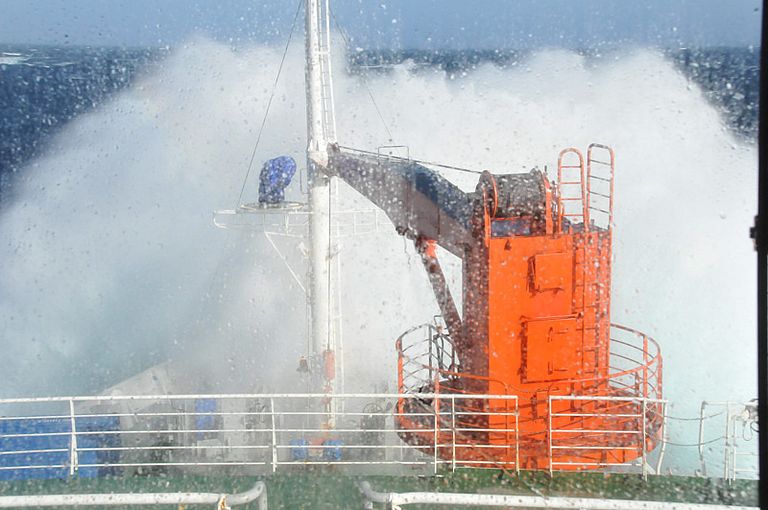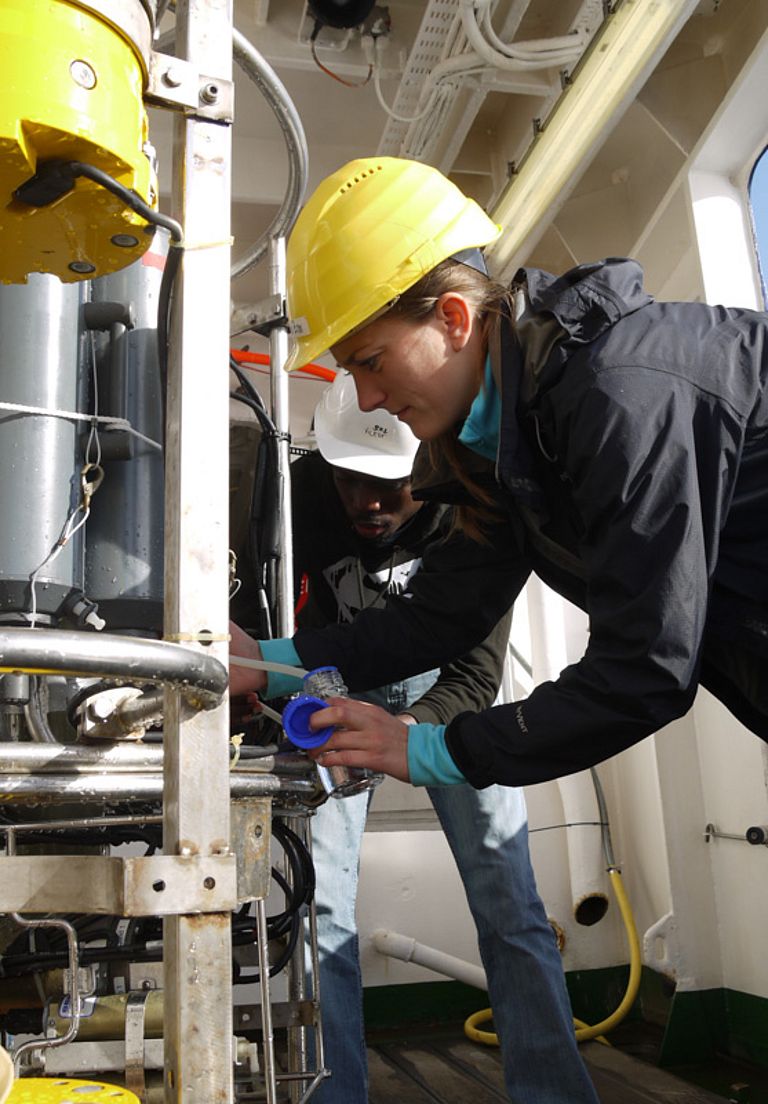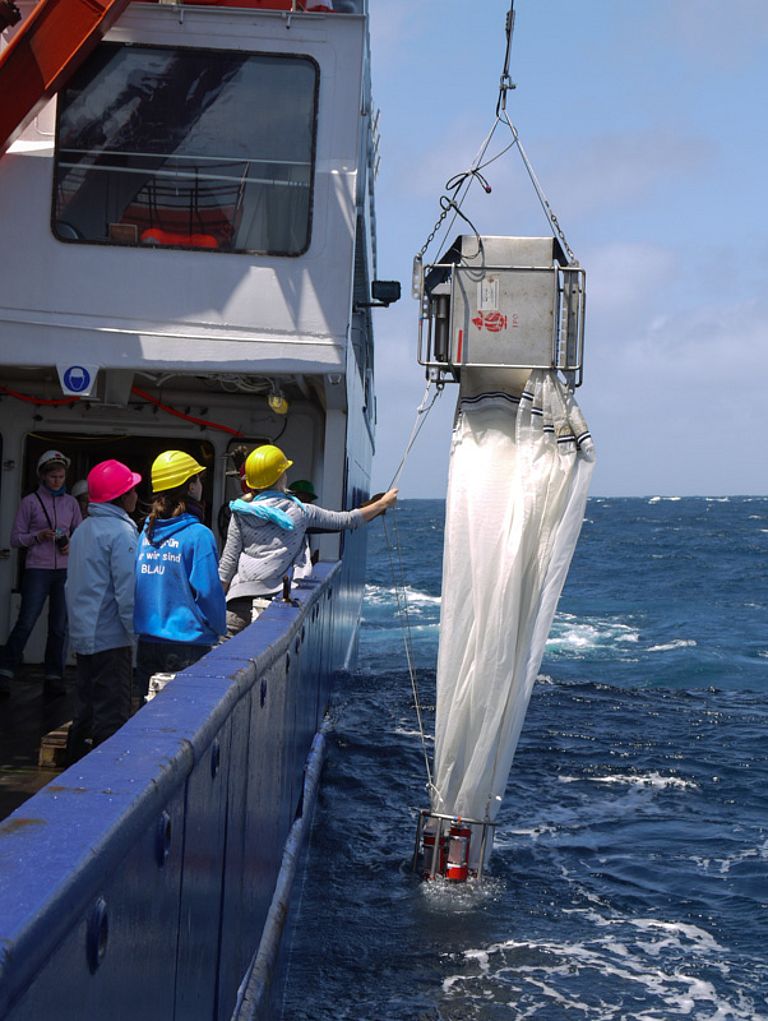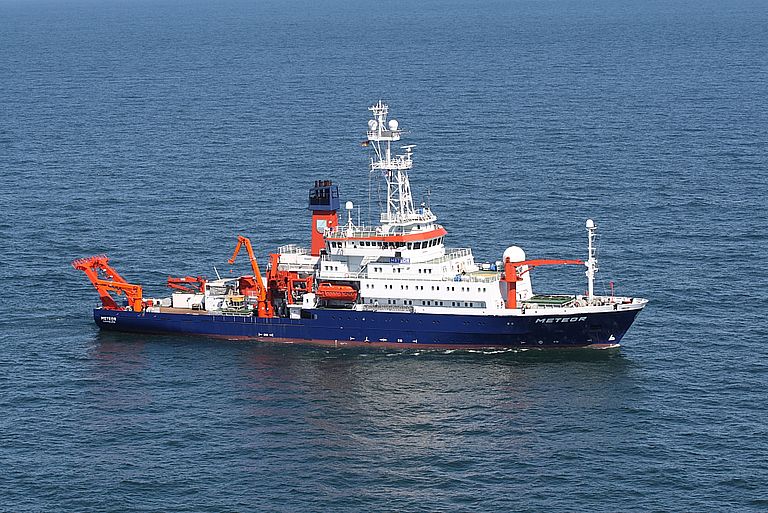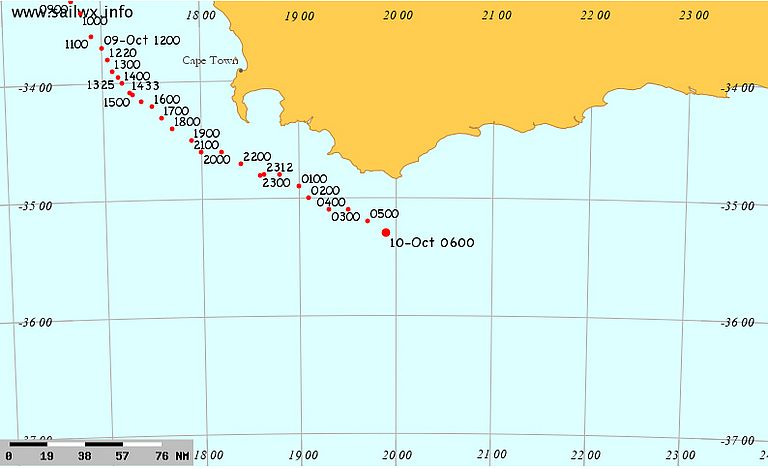METEOR: Anniversary Expedition off South Africa
German and African marine scientists on the way to the Indian Ocean
METEOR is a household name in the German as well as the international marine research communities. The very first German research vessel, christened “METEOR”, made science history as she conducted the then most accurate survey of the seabed and water masses of the South Atlantic between April 1925 and June 1927. The restart of the internationally recognized German marine research after World War II is also strongly linked to the name METEOR. In October 1964, the newly completed METEOR (II) sailed from Hamburg to participate in the first “International Indian Ocean Expedition". The first leg of the journey lasted until June 1965, and covered more than 24,000 miles.
Today, 49 years later, METEOR (III), commissioned in 1986, reached the Indian Ocean again during its 100th expedition. The current research cruise from Walvis Bay, Namibia, commenced on 4th October. After 3,400 miles, it will end in Port Louis, Mauritius, on 21st October. “It's really a great pleasure for me to be part of the 100th METEOR expedition, which, once again, takes us to the Indian Ocean,” said chief scientist Prof. Dr. Martin Visbeck of GEOMAR Helmholtz Centre for Ocean Research Kiel. The scientific contingent comprises of scientists from Kiel, Hamburg, Bremen, Norway and South Africa on board. The experienced researchers will be supported by 20 students from Germany, South Africa, Namibia, and Madagascar.
The anniversary expedition of METEOR (III) will investigate ocean currents and water mixing processes around the southern tip of Africa. The currents there are part of the global thermohaline circulation system. This large-scale circulatory system connects the cold deep waters of the North Atlantic with the Antarctic Circumpolar Current. From there water passes into intermediate layers of the Pacific and the Indian Ocean, and flows through the Agulhas Current system south of South Africa back into the North Atlantic.
“The upwelling of the Benguela current system off Namibia is one of the most productive in the world,” says Professor Dr. Holger Auel from the University of Bremen. “We are interested in the plankton in this area, particularly the influence of low-oxygen zones on its vertical distribution.” Unfortunately, gale-force winds off Namibia have significantly reduced the number of measurements taken during the initial working days.
The second research area of the expedition is located south of South Africa in the Indian Ocean. “The current system, named after Cape Agulhas, contains one of the strongest currents in the world,” explains Prof. Dr. Arne Biastoch, an ocean modeler from GEOMAR. “Here, warm and saline water masses from the Indian Ocean collide with those of the South Atlantic. Parts of the warm and saline water are transported by oceanic eddies all the way up to the coast of northern Brazil, and can - on longer time scales - even affect European climate.” METEOR will measure the strength of the flow, and document the changing properties of the water masses.
The third and final research area is located off the southeastern tip of Madagascar. “The East Madagascar Current brings water masses from the Indonesian throughflow into the Agulhas system,” says Dr. Jenny Ullgren, physical oceanographer at the University of Bergen, Norway.
However, mixing is not only intended for the waters of the seas, but also for the ideas and research of young marine scientists and scholars from Germany and Africa on board. Students will actively help in the measurements aboard METEOR, and, forming international teams, must each design their own small research project. These are typically based on measurements taken aboard METEOR, and also model simulations obtained from Kiel.
Furthermore, biogeochemists aboard the METEOR take air and near-surface water mass measurements. “We do not often have the opportunity to measure CO2, methane, and oxygen uptake in the South Atlantic and the Indian Ocean,” said Dr. Tim Rixen of the University of Hamburg and the Center for Tropical Marine Ecology in Bremen.
In addition, the instructors hold two lectures each day on board to provide a wider knowledge of the ocean to all cruise participants.
“During its 100th expedition, the METEOR proves once again the strong international standing of German marine research. Above all, it shows that marine research can also connect individuals and peoples. This is a good sign,” surmises Prof. Visbeck.
Contact:
Jan Steffen (GEOMAR, Communication & Media), Tel.: (+49) 0431 600-2811, jsteffen(at)geomar.de
